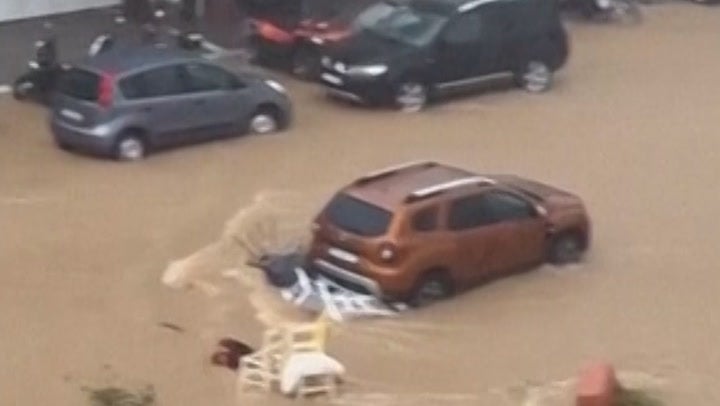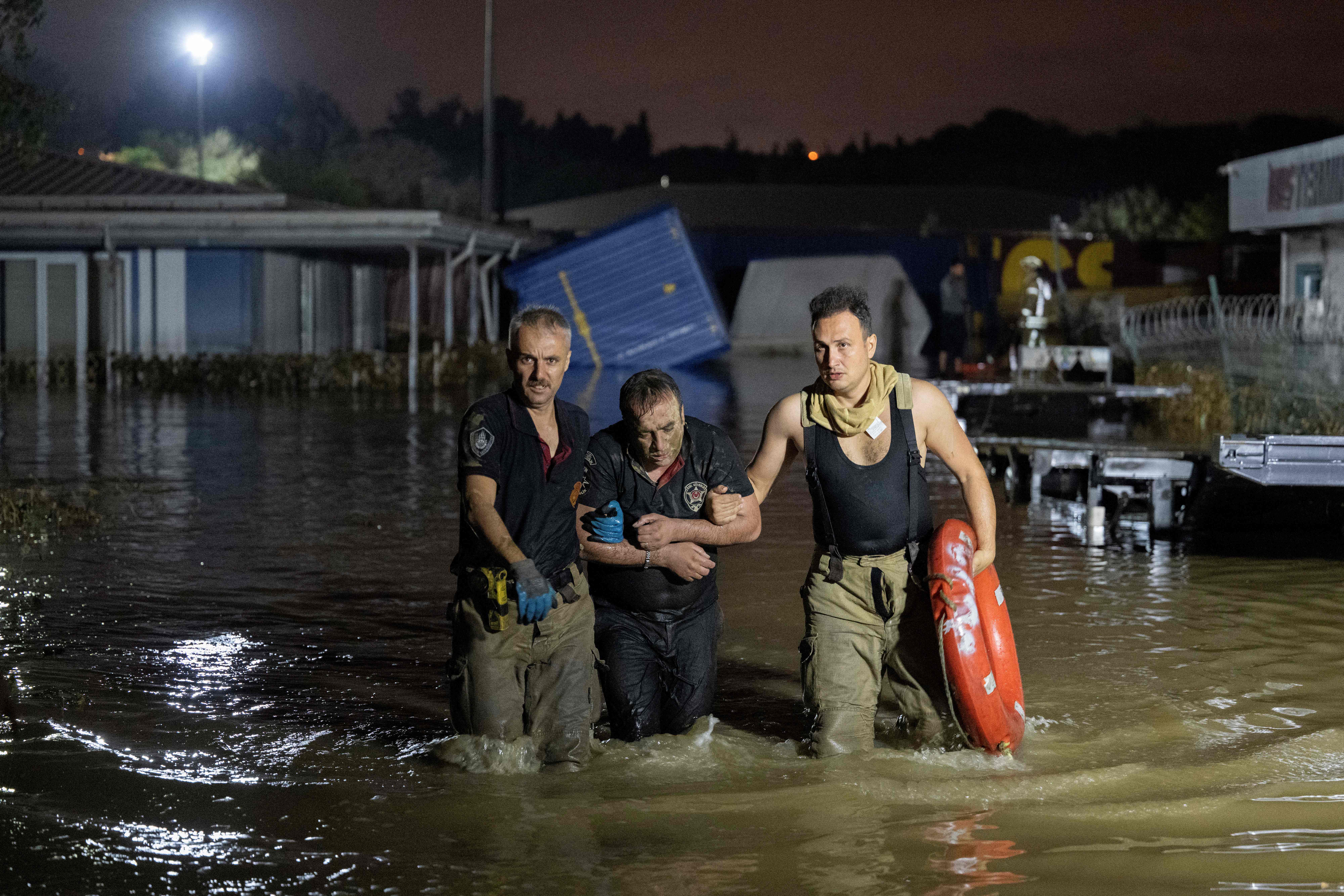Greece weather forecast: more storms batter Europe as tourists trapped abroad
Skiathos and other parts of Greece and Turkey to be hit with further rain and thunderstorms
Your support helps us to tell the story
From reproductive rights to climate change to Big Tech, The Independent is on the ground when the story is developing. Whether it's investigating the financials of Elon Musk's pro-Trump PAC or producing our latest documentary, 'The A Word', which shines a light on the American women fighting for reproductive rights, we know how important it is to parse out the facts from the messaging.
At such a critical moment in US history, we need reporters on the ground. Your donation allows us to keep sending journalists to speak to both sides of the story.
The Independent is trusted by Americans across the entire political spectrum. And unlike many other quality news outlets, we choose not to lock Americans out of our reporting and analysis with paywalls. We believe quality journalism should be available to everyone, paid for by those who can afford it.
Your support makes all the difference.At least 13 people have been killed in severe storms lashing parts of Greece, Turkey and Bulgaria.
Two people have been confirmed dead and four people are missing in central Greece after torrential rain flooded homes and businesses.
The body of an elderly woman was recovered close to a seaside community in the southern Pelion region near the port city of Volos on Wednesday, while 10 people were trapped in the area, Michalis Mitzikos, a local mayor, told Skai television. One man had died on Tuesday after a wall collapsed.
Greece has said the weather was the most extreme, in terms of rainfall, since records have been kept.
“Yesterday the rainfall was very intense, unprecedented,” said Vasilis Batsios, 44, in Volos. “For 24 hours it was non-stop and there was a lot of water; the amount of water was unbelievable.”
Police issued traffic warnings for the cities of Trikala and Karditsa as the rainstorm was not expected to weaken before Thursday.
Skiathos, a popular holiday island in the northwest Aegean Sea, has also been hammered by rain, leaving hundreds of British holidaymakers stranded after their flights were cancelled.
Jet2, which normally operates many flights between the UK and Skiathos, has cancelled all its Tuesday and Wednesday services.
Holidaymakers on the island have been left with “no way to get food” with many currently unable to get to the airport.


One stranded tourist said the centre of Skiathos was “underwater” and described the situation as “horrendously scary”.
Police have ordered all residents and tourists to stay off the streets and the island’s mayor has put in a request to declare a state of emergency.
The Foreign Office has updated its travel advice for Greece, telling British tourists on the island to check the local emergency communication services for updates as the “situation can change quickly”.
It comes as the World Meteorological Organization (WMO) said that the northern hemisphere experienced its hottest summer on record, fuelled by the climate crisis
A flash flood at a campsite in northwest Turkey, near the border with Bulgaria, killed at least five people and carried away bungalow homes, with three people found dead on Wednesday. Rescuers were still searching for one person reported missing at the campsite.
Another two people died in Istanbul, Turkey’s largest city, where Tuesday’s storms inundated hundreds of homes and workplaces in several neighbourhoods.
The dead in Istanbul included a 32-year-old Guinean citizen who was trapped inside his basement apartment in the Kucukcekmece district, Turkish broadcaster Haberturk TV reported. The other was a 57-year-old woman who died after being swept away by the floods, the DHA news agency reported.
Around a dozen people were rescued after being stranded inside a library, while some subway stations were shut down. Istanbul governor Davut Gul urged motorcyclists to stay at home.

In Bulgaria, a storm caused floods on the country’s southern Black Sea coast.
The body of a missing tourist was recovered from the sea on Wednesday, raising the overall death toll to three. Border police vessels and drones were assisting efforts to locate another two people still listed as missing. TV footage showed cars and camper vans being swept out to sea in the southern resort town of Tsarevo, where authorities declared a state of emergency.
The Met Office said “slow-moving” Storm Daniel crossing would bring further rain to the central Mediterranean region.
“Much of the area will see between 50 and 150mm of rain over the next two days from Daniel, as it’s a slow-moving system,” Stephen Dixon, a Met Office spokesperson told The Independent. “There are also strong winds and rough seas throughout the period. Daniel will gradually weaken in a few days’ time.”
Greece’s weather service said a village in Pelion received 75.4cm (nearly 30in) of rain late Tuesday, by far the highest level recorded since at least 2006.
It noted that the average annual rainfall in the Athens region is around 40cm (15.75in).
“There is clear evidence that extreme weather events, such as floods, droughts, and wildfires, are becoming more frequent and more intense with climate change,” Aleksandra Kazmierczak, a climate expert with the European Environment Agency (EEA), told The Independent.
“We have seen this across Europe this summer and now unfortunately also in Greece. We need to rapidly reduce greenhouse gas emissions to avoid the worst consequences of climate change, but it is equally important that we prepare our societies for its current and future impacts.”
The WMO and the European Union’s climate change service Copernicus also announced that last month was the hottest August ever recorded.
The month was about 1.5C warmer than pre-industrial averages.
“The dog days of summer are not just barking, they are biting,” United Nations secretary-general, Antonio Guterres, said in a statement.
“Climate breakdown has begun.”




Join our commenting forum
Join thought-provoking conversations, follow other Independent readers and see their replies
Comments